Menu
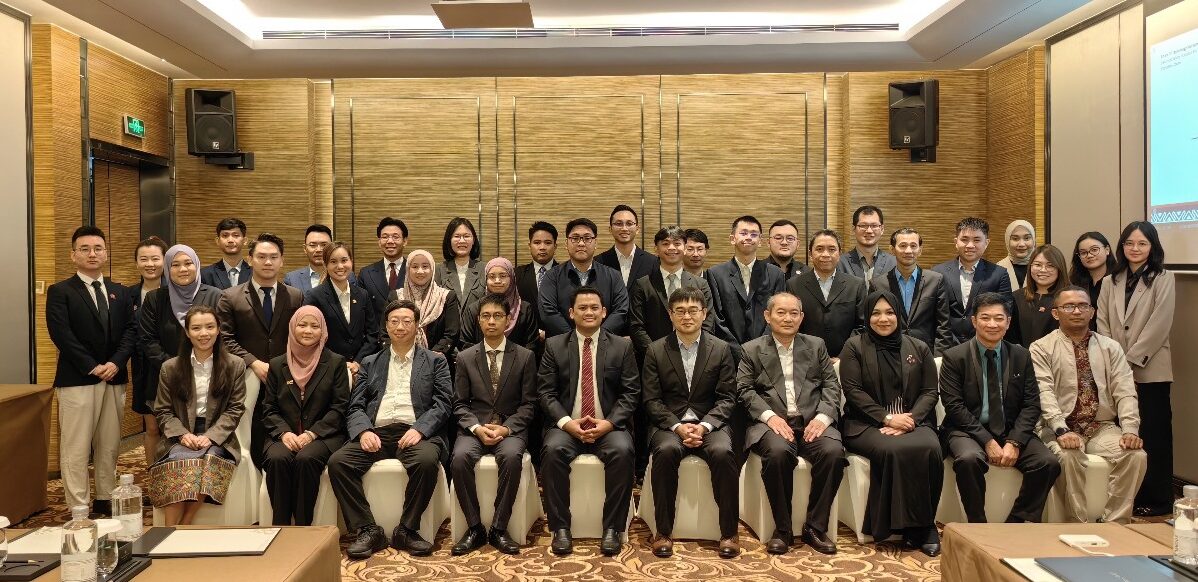
Photo 1. ASEAN Delegates and Huawei Representatives on day two of the Smart PV & BESS Workshop in Shenzhen, China, 29 October 2024
On 28-29 October 2024, the ASEAN Centre for Energy (ACE), in collaboration with Huawei, hosted the Smart PV Technology Workshop on Electrical Safety Standards for PV and BESS at the Amber Plaza Hotel in Shenzhen, China. This event included visits to Huawei’s Smart PV Facilities and R&D centers, aiming to explore the development of electrical safety standards for solar photovoltaic (PV) and battery energy storage systems (BESS) in ASEAN. Attended by ASEAN government officials, public utility representatives, and industry experts, the workshop provided a platform for discussions on current safety regulations, challenges, and future standards. The event highlighted ASEAN’s commitment to advancing renewable energy safety through collaborative knowledge sharing and technological insights.
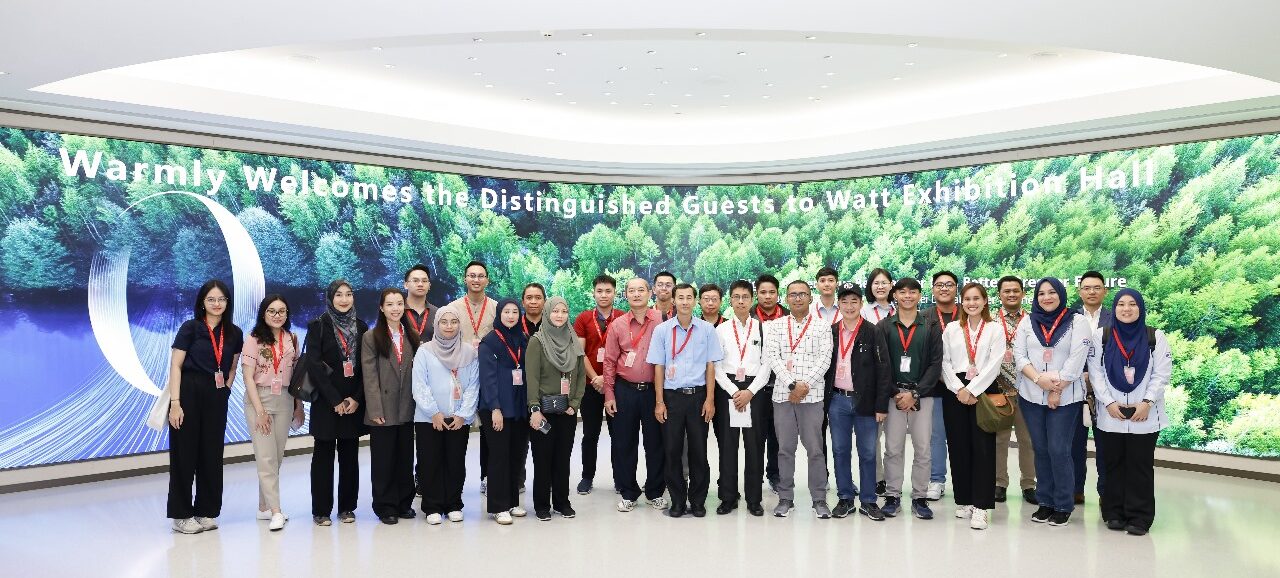
Photo 2. Participants at the Watt Exhibition Hall
Day one of the event commenced with a tour to Huawei facilities, with the first stop of the tour being the Watt Hall. This Huawei exhibition showcases various Huawei Digital Power products and solutions, including smart PV, data centre facility and critical power supply, site power, smart electric, and smart charging network. One of the notable aspects discussed was FusionSolar, a Huawei system that combines the monitoring systems for PV and energy storage to further streamline solar PV towards becoming the major energy source in the world. The FusionSolar system was also reiterated in the next visit, which was the Smart O&M Management Center.

Photo 3. Participants receiving an introduction to FusionSolar at the Smart O&M Management Center (left); Participants visiting the Rooftop PV Facility (right)
At the solar PV rooftop, participants got a first-hand look at Huawei’s rooftop solar PV and received a breakdown of how they undergo strict evaluation and quality testing. This is to ensure that the PV panels can withstand harsh conditions and weather, as well as to optimise the safety of installations and efficiency of performance.
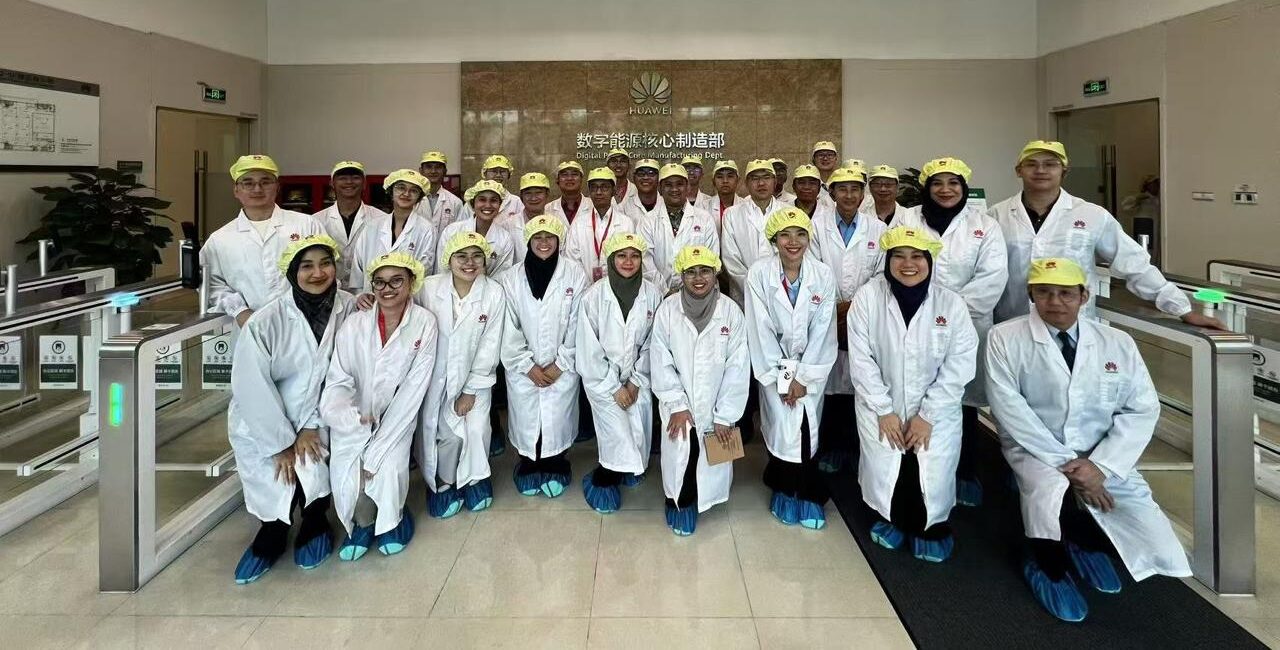
Photo 4. Participants visiting Huawei’s Inverter Production Factory
In the afternoon, participants visited Huawei’s Inverter Production Factory and witnessed the detailed production process of Huawei’s Inverter from start to finish. The strict testing of the production was underscored, emphasising the importance of ensuring efficiency and safety. Moving onto the next site, participants were taken to the BESS Testing Lab. The tour of the lab was led by Yong Chian Haw, Global Solutions Chief Technical Officer (CTO) of Smart PV & ESS at Huawei Digital Power and Frank Meng Shize, Industry Manager of Huawei, who provided a detailed and in-depth overview of how Huawei conducts defective and protection tests for their batteries to ensure optimal safety.
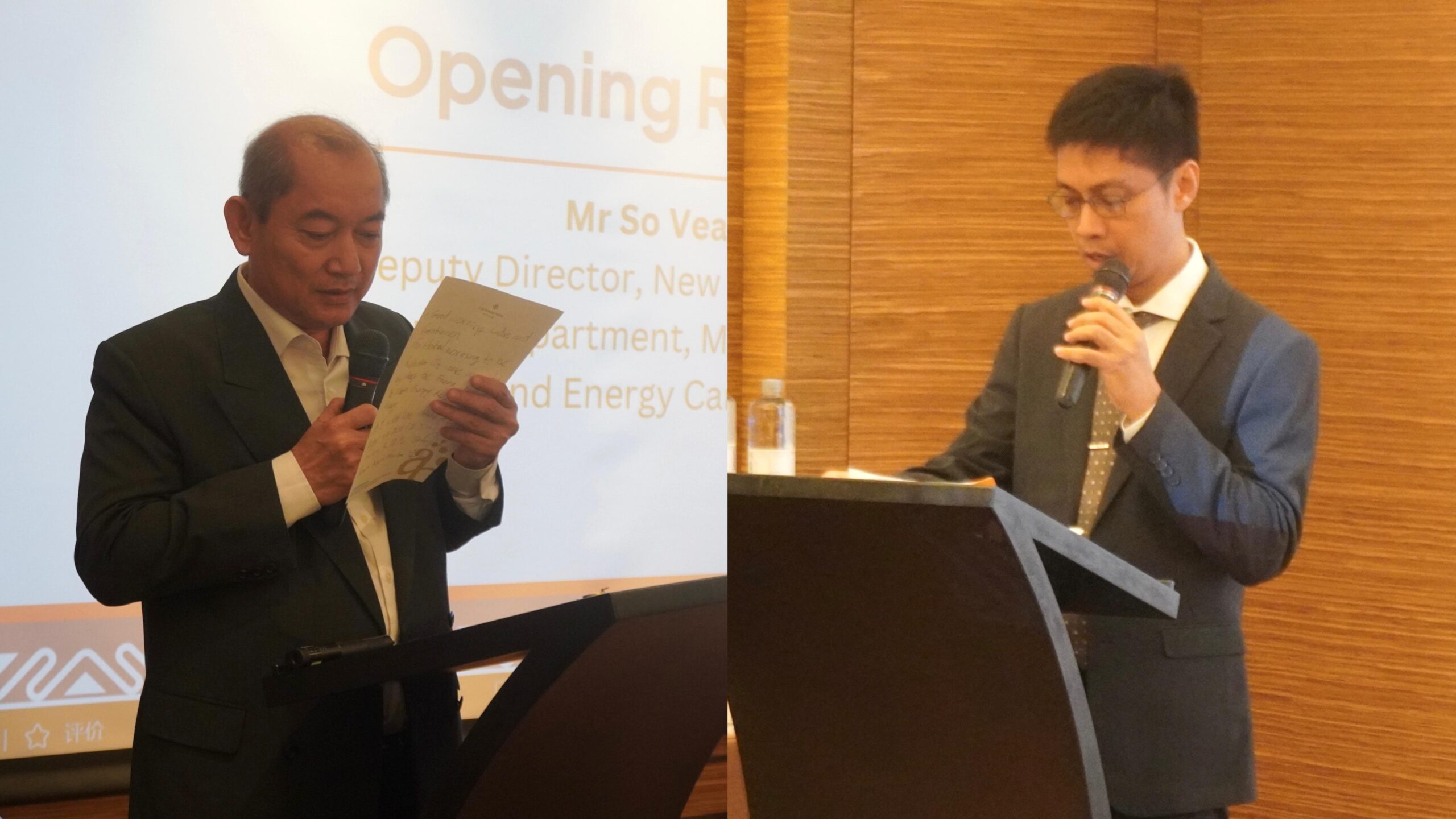
Photo 5. Opening remarks from So Veasna, Deputy Director of the New and Renewable Energy Department, Ministry of Mines and Energy, Cambodia (left) and Dr Myo Min Thein, Director of Power Development Planning Division, Ministry of Electric Power, Myanmar (right)
Day two commenced by Amara Zahra Djamil, Junior Associate Commuincations Officer of ACE, who acted as the events Master of Ceremony. So Veasna, Deputy Director of the New and Renewable Energy Department, Ministry of Mines and Energy of Cambodia, delivered opening remarks and highlighted ASEAN’s commitment to addressing climate change through renewable energy adoption. He emphasised Cambodia’s dedication to increasing renewable energy in its primary energy mix and expressed hope that this workshop would foster valuable insights for safe technology development.
Dr Myo Min Thein, Director of Power Development Planning Division, Ministry of Electric Power of Myanmar, underscored the workshop’s importance in advancing electrical safety standards for PV technology and BESS across ASEAN. He noted Myanmar’s strides in renewable energy, with increasing solar projects aligning with its sustainable energy goals.
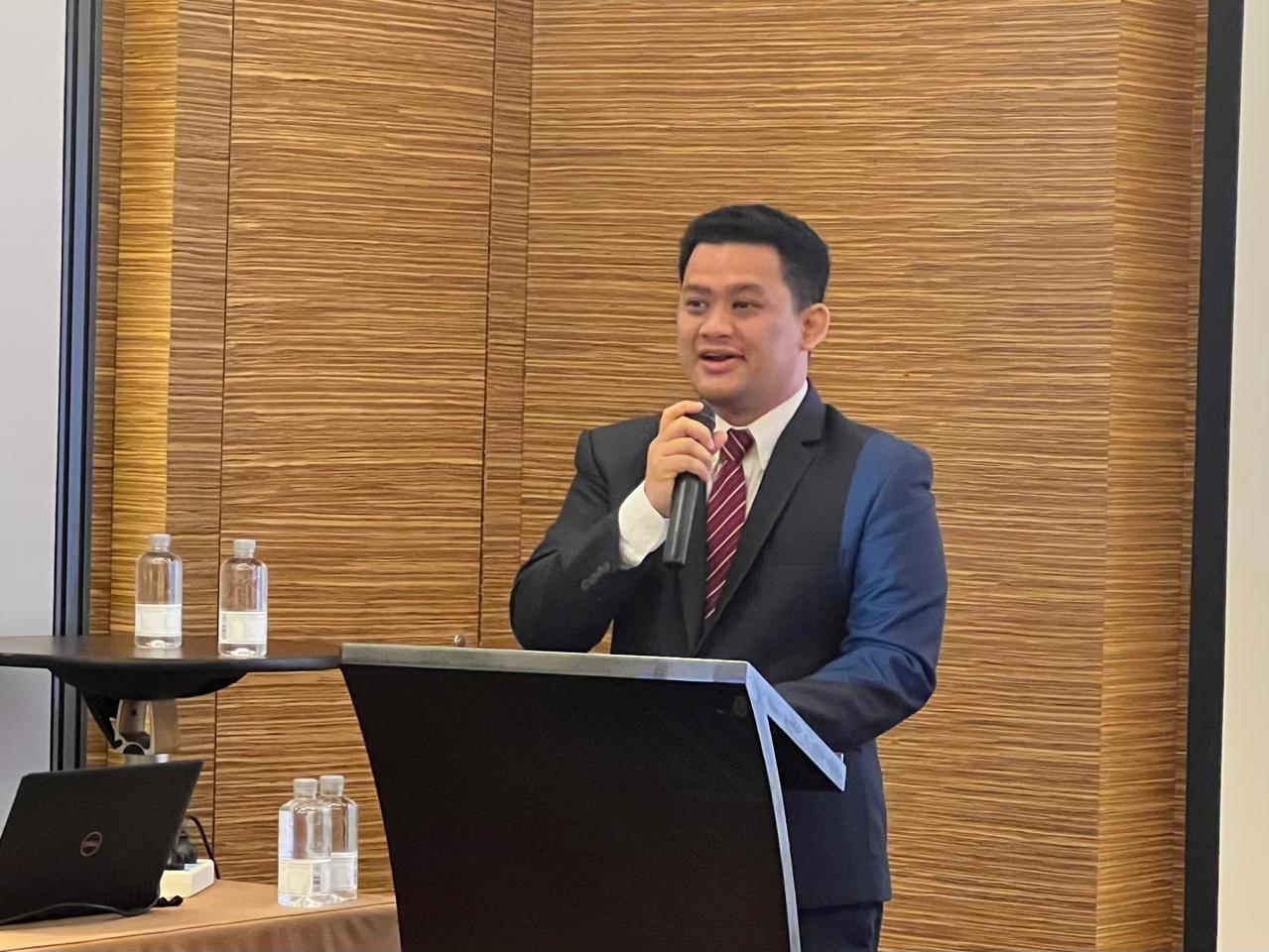
Photo 6. Opening remarks from Dr Andy Tirta, Head of Corporate Affairs at ACE
Finally, Dr Andy Tirta, Head of Corporate Affairs at ACE, underscored ASEAN’s growing energy demand, driven by rapid economic growth, and the critical role of solar PV and BESS in meeting this demand sustainably. He highlighted ACE’s partnership with Huawei, aimed at fostering safer renewable energy practices across ASEAN.
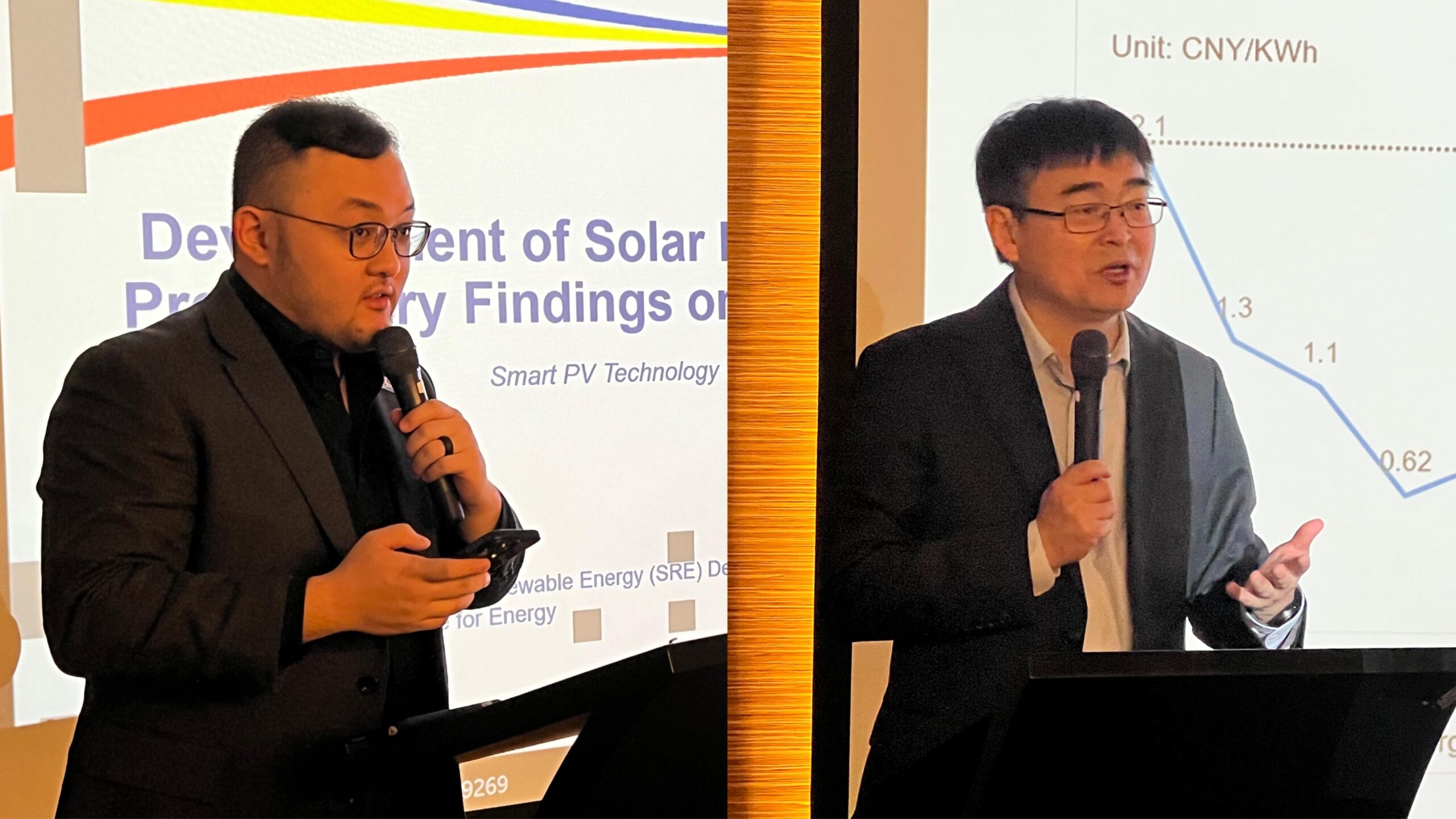
Photo 7. (left-right) Frank Meng Shize, Industry Manager of Huawei, as moderator and Dr Fang Liangzhou, President of Marketing and Sales Strategy, Strategy and Marketing Department of Huawei Digital Power, delivering a presentation
The first session focused on the theme of “Navigating Renewable Energy Development and Solar Rooftop Safety Standards”. Moderated by Frank Meng Shize, the session focused on advancements and challenges in renewable energy, particularly solar photovoltaic (PV) systems and the necessary safety standards for their deployment were discussed. Dr Fang Liang Zhou, President of Marketing and Sales Service at the Strategy and Marketing Department of Huawei Digital Power, delivered a presentation outlining Huawei’s commitment to carbon neutrality and investment in research and development.
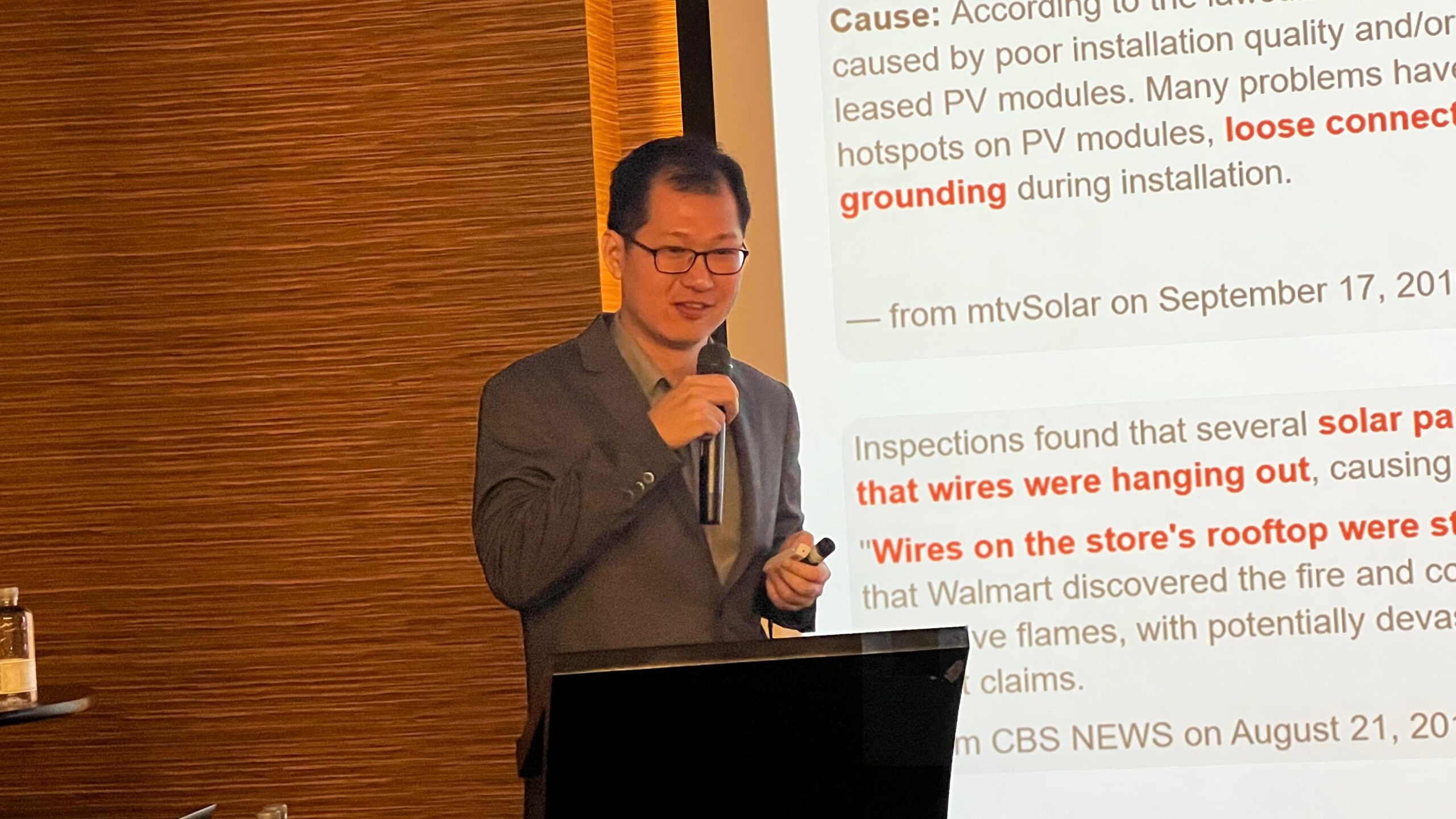
Photo 8. Yong Chian Haw of Huawei Digital Power giving an introduction to solar rooftop safety
Following this, Yong Chian Haw delved into solar rooftop safety features, focusing on the hazards inherent to PV systems such as arc faults, ground faults, and parallel short circuits. Through case studies from Thailand, Singapore, and Malaysia, he illustrated the risks associated with PV installations and the unique safety requirements for DC systems.
Session two provided an “Overview of Electrical Safety Standards Development and Status Quo in ASEAN” and was moderated by Veronica Ayu Pangestika, Associate Research Analyst of SRE Department at ACE. Zahrah Zafira, Associate Research Analyst of SRE Department at ACE, delivered a scene setting presentation outlining ASEAN’s ambitious renewable energy targets within the ASEAN Plan of Action for Energy Cooperation (APAEC). She highlighted the steady but challenging progress in increasing solar PV and BESS installations across member states.
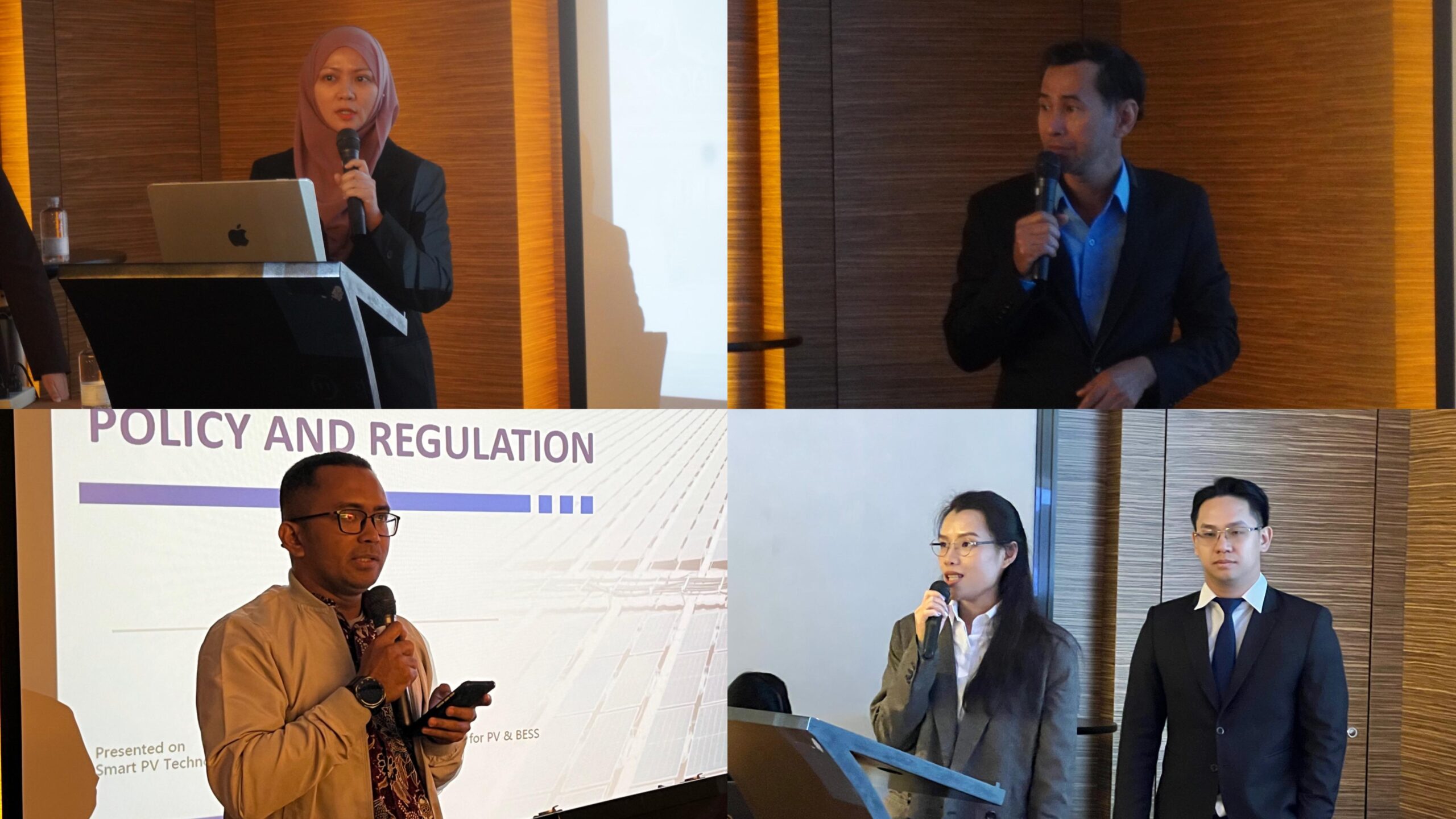
Photo 9. Delegates from 8 ASEAN Member States presented their national solar PV and BESS Safety Standards, with Siti Sarah binti Haji Awang Yusop of Brunei Darussalam, Leang Rasmey of Cambodia, Irfan Hasymi Kelrey of Indonesia, Souphavady Phothisath and Kittiphonh Phengthavongsa of Lao PDR
The session continued with presentations by delegates from eight (8) ASEAN Member States each outlining their national efforts and challenges in adopting and enhancing electrical safety standards for renewable energy. Brunei Darussalam highlighted its “Surya Project”, showcasing solar projects aligned with climate goals and integrated into its national regulations. In the case of Cambodia, the country’s renewable energy ambitions are primarily centred around large-scale solar PV and hydropower projects. Moreover, Indonesia provided insights into the country’s four-pillar approach to electrical safety, covering occupational, public, environmental, and installation safety, while Lao PDR presented the country’s National Power Development Strategy that focuses on the expansion of renewable energy, particularly solar PV, to balance Lao PDR’s largely hydropower-dependent energy supply.

Photo 10. AMS Delegates presenting their national solar PV and BESS Safety Standards, with Iffah Hannah Muluk of Malaysia (top left), Dr Myo Min Thein of Myanmar (top-centre), Feldimir Dalusong Siao of the Philippines (top-right), Thanawat Omepimabut of Thailand (bottom-left), Sasatorn Kosolsaksakul of Thailand (bottom-centre), and Pratthaya Nawig of Thailand (bottom-right)
Malaysia discussed the Energy Commission’s efforts to standardize safety in solar PV and BESS, and Myanmar outlined its reliance on hydropower and plans to increase solar in the energy mix. The Philippines presented safety frameworks for solar PV and BESS, including the Philippine Electrical Code and Solar Safety Code of Practice, while Thailand shared its IEC-based regulations and licensing standards for PV and BESS installations.
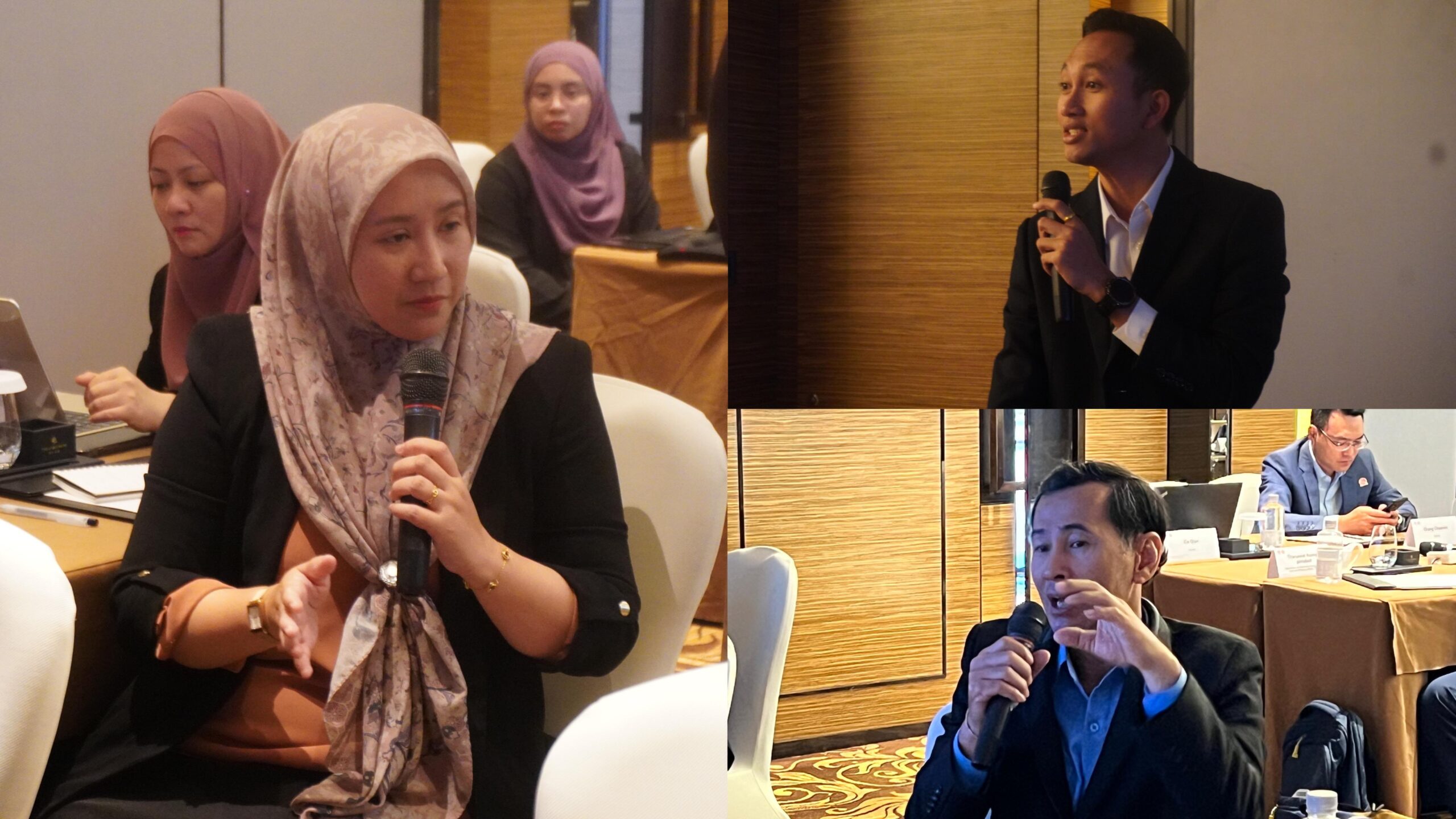
Photo 11. AMS Delegates during the Q&A session, Nurlina Tuah of Brunei Darussalam (left), Cheapanhasith Pel of Cambodia (top-right), Leang Rasmey of Cambodia (bottom-right)
Moving onto the third and final session, “Expert Sharing on ESS Technology Development and Safety Standards” moderated by Frank, the discussion focused on advancements in ESS technology and its critical safety standards. Patipan Kalvibool from Huawei Digital Power Thailand provided insights into key risks like thermal runway in ESS, the importance of safety protocols, and IEC Standards.
To close the workshop, Dr Andy delivered closing remarks and thanked Huawei for their partnership and commitment in supporting ASEAN’s renewable energy goals. He highlighted the workshop’s role in building a collaborative foundation for a safer and more sustainable renewable energy future in the region emphasising ACE’s commitment in developing a comprehensive white paper as a guiding resource for ASEAN’s electrical safety standards. Amara, as the Master of Ceremony, also provided the final wrap-up, where she noted the valuable exchange of insights from AMS representatives on challenges such as enforcement gaps and the need for consistent inspections.
Overall, the workshop highlighted the shared need for ASEAN nations to balance adherence to international standards with the development of national codes that address unique challenges. Through collaborative dialogue, ASEAN countries collectively identified best practices, regulatory gaps, and future steps to enhance the safe deployment of solar PV and BESS technologies across the region.
